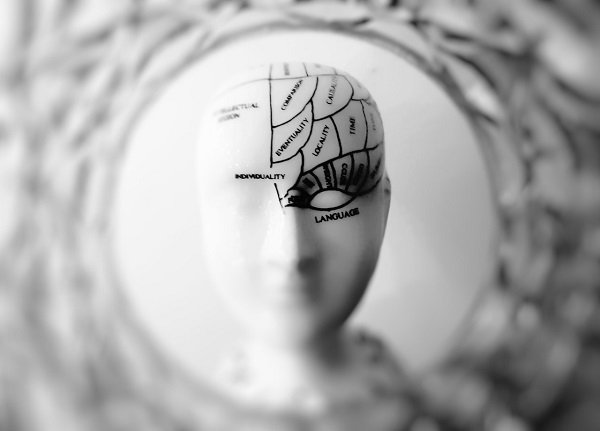
Having trouble slimming down? Although you’ve bought the best gym jacket for women and registered in one of the top gyms but no success?
Learn the ins and outs of healthy weight management and weight loss through a combination of a good diet and regular exercise.
Maintaining a healthy weight and improving your health can seem insurmountable initially, but you’ll soon notice results once you commit to an exercise and food plan. Setting attainable goals is crucial. Lose no more than 10% of your starting weight in 6 months, or about half to one kilogram (0.5 to 2.2 pounds) every week.
Get started on the path to health and fitness success with these excellent pointers and recommendations by experts:
1. Give The Method Of Intermittent Fasting A Shot
Fasting for periods of time regularly and eating only at specific times of the day constitute what is known as intermittent fasting (IF).
According to credible sources, short-term intermittent fasting (up to 24 weeks) has been shown to cause significant weight loss in obese people.
2. Refrain From Eating Out Of Emotion
We don’t always eat to get our stomachs full. Humans have a terrible habit of relieving stress and anxiety by eating, which can quickly derail even the most well-laid plans for weight loss.
Do you reach for food when you’re anxious, bored, or lonely? When you get home from a long day, do you eat in front of the TV to relieve stress?
Understanding what makes you vulnerable to emotional eating can make a huge difference in your success at losing weight.
3. Reduce Your Intake Of Carbohydrates
One perspective on weight loss places the blame not on eating too many calories but on how the body stores fat in response to carbohydrate consumption, particularly the hormone insulin’s contribution to this process.
Carbohydrates in meals are absorbed as glucose when you eat. Maintaining healthy blood sugar levels requires that glucose be burned off first before any of the fat from a meal is used for energy.
The hormone insulin is secreted in response to a meal high in carbohydrates. This includes a lot of pasta, rice, bread, or frozen French fries that are often packed attractively by a luxury packaging manufacturer so that people buy them crazily.
Insulin controls blood sugar levels and stops fat cells from releasing fat for the body to burn as fuel (as its priority is to burn off the glucose) and generates additional fat cells for storing all that the body cannot burn off.
You put on weight and find yourself hungry since your body has increased its energy needs.
4. Make Switch To Whole Grains
Noodles, rice, and bread should all be made from natural ingredients. You’ll feel fuller sooner and for a longer period of time when you choose less processed choices because they include whole grains.
Whole grains, fruit, and vegetables are low in calories when prepared properly (i.e. with less oil and sugar). These foods are not only low in fat and high in fiber, but they also provide a substantial amount of antioxidants for their calorie content.
Don’t feel you must restrict yourself to white rice and bread if you eat entire grains. Noodles, kway teow, mun tou, and cookies are just some of the many whole grain options now available.
5. Keeping A Food And Workout Journal
Being mindful of what you consume daily is essential for weight loss. The best method to do this is to keep a food journal or use an online meal tracker to record everything they eat.
In 2017, experts predicted that 3.7 billion people worldwide would use a health app. Many people have found success using apps that help them eat healthier, exercise more, and maintain or lose weight.
For a good cause, keeping tabs on one’s daily movement and weight loss efforts while on the go can be an efficient way to keep one’s weight in check.
6. Protein-Rich Morning Meals
Some studies have shown that eating a meal high in protein can reduce hunger hormone levels. This is mostly due to an increase in cholecystokinin, peptide YY, and GLP-1 and a decrease in the hunger hormone ghrelin.
Several hours of hormone impacts from a high-protein breakfast have been shown by research in young adults.
Breakfast foods that are high in protein include eggs, oats, nut and seed butter, quinoa porridge, sardines, and chia seed pudding.
When you have the best meal of every day in the morning, you will be all set to perform your job with full energy and focus. Whether you are a student or work as a plumber dealing with types of valves in water distribution systems, the right breakfast is all you need!
7. Fruits, Vegetables, And Fiber-Rich Foods Should Make Up The Bulk Of Your Diet
You don’t have to starve yourself if you’re trying to lose weight by reducing your calorie intake. Fruits, vegetables, beans, and whole grains are examples of high-fiber diets. These foods tend to be larger in size and take longer to digest, making them ideal for weight loss because they satisfy hunger for longer.
You may eat as much fresh fruit and non-starchy vegetables as you like without worrying about gaining weight, as these foods fill you up quickly.
Instead of frying or breading your vegetables, try eating them raw or steamed and seasoning them with herbs, spices, or olive oil.
8. Restoring a Healthy Microbiome
The effect of gut flora on food intake and energy expenditure is the subject of some promising new studies.
Roughly 37 trillion bacteria and 100 other types of microbes call the human digestive tract home.
There is a wide range of bacterial species and numbers in the human gut. Although they benefit our gut, but many of them, when interact with the external environment, become harmful too. That’s why you’ve often seen sensitive labs such as where micro injection molds are prepared or medical labs have strict hygiene protocols.
Some types can boost a person’s ability to absorb nutrients from meals, leading to increased fat storage and weight gain.
Conclusion
Keeping in mind that there are no shortcuts to losing weight is crucial
Eating a wholesome, well-balanced diet is the most effective approach to achieving and keeping a healthy weight.
Specifically, this means eating 10 servings of fruits and vegetables, along with sufficient protein and complete carbohydrates. Exercise for at least 30 minutes daily is also recommended.




